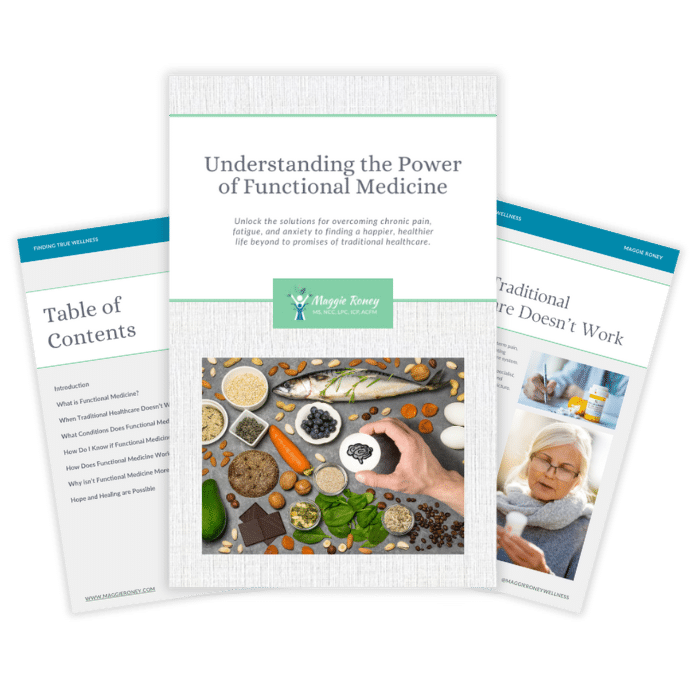In a culture that makes eating unhealthy very convenient, it can be a challenge to constantly maintain a healthy diet! That is why in this article, we will discuss effective tools to regain control with meal planning. Preparing in advance for what you and your family will eat each week is the most effective step in the journey toward lasting wellness.
After posting the recent article on “A Healthy Gut Equals a Healthy You”, you might find it difficult to practically apply the truths regarding our food intake. As discussed, from digestion to immunity, and even mental health, the health of our gut influences various aspects of our lives.
The Importance of Meal Planning for Health
Meal planning is not just about organizing your meals; it is a transformative approach to health. Meal planning allows you to take control of your nutrition by carefully selecting and preparing balanced meals.
When you plan your meals in advance, you can ensure that you include a variety of food groups, such as fruits, vegetables, lean proteins, and whole grains. This helps you meet your daily nutritional requirements and avoid overindulging in unhealthy, processed foods.
A study published in the Journal of the Academy of Nutrition and Dietetics in 2014 found that meal planning was associated with a lower body mass index (BMI) and a higher likelihood of engaging in regular physical activity. By consistently consuming a well-balanced diet, you can support your overall health, maintain a healthy weight, and help reduce the risk of chronic diseases.
Getting Started with Meal Planning
Embarking on the meal planning journey may seem daunting at first, but the rewards are well worth the effort. Yes, it may take some adjustments and a bit of time, but you will also gain the freedom to make the right choices.
Set Clear Health Goals
Define what you want to achieve with meal planning. Whether it’s weight management, better nutrition, or improved energy, having clear goals will motivate you. Here are a few examples to get you started:
- Weight Management and Portion Control
- Improved Nutritional Intake
- Consistent Healthy Eating Habits
- Comply with Dietary Restrictions
Gather Resources
Invest in good meal planning tools to set yourself up for success! Below is a list of trusted resources you may find helpful in beginning your journey:
I. Containers and storage
Avoid using plastic containers, not only because they will not last as long as glass or silicone, but because microwaving plastics have been known to leak unnecessary chemicals into our food.
II. Meal Planning Books and Recipes
- Cook Once, Eat All Week
- Meal Planning Journal
- Danielle Walker Recipes and Resources
- eMeals
- One week meal plan example
- Eating Clean for Beginners
Helpful Tip:
- Store your individual meals in the freezer and include the cooking date. Not only will you avoid potentially wasting a meal if you are unable to eat it in time, but it will prevent mold, bacteria, and yeast from growing on your food.
(Yes, with some foods it can be within the next day. If you have a histamine intolerance or similar condition, you should avoid eating meat that has been cooked and sat in the refrigerator overnight)
Plan Your Meals
Set aside a dedicated time each week for meal planning and prep, making it a regular part of your schedule to ensure it becomes a habit.
Plan Balanced Meals:
Aim for a balanced diet that includes a variety of foods from different food groups:
- Protein: Lean meats, poultry, fish, legumes..
- Carbohydrates: Whole grains like brown rice, quinoa, as well as fruits and vegetables.
- Healthy Fats: Avocado, nuts, seeds, and olive oil.
- Fiber: Incorporate plenty of fiber-rich foods to support digestion.
- Vitamins and Minerals: Ensure you get a wide range of vitamins and minerals from colorful fruits and vegetables.
Shopping List
Organize by categories like produce, proteins, grains, and pantry staples. Additionally, take inventory of your kitchen to avoid unnecessary purchases, and consider including versatile items that can be used across multiple meals, promoting cost-efficiency and reducing food waste. Below are links to some samples.
Flexibility
Designate one or two nights as “flexible” or “leftover” nights in your plan, allowing you to use up any remaining ingredients or leftovers, reducing food waste and accommodating changes in your schedule. After a few weeks of consistent meal prepping, you may have compiled a few different extra meals in the freezer for just this very purpose.
Helpful Tip:
- Make it simple! Choice a meat, vegetable and starch to each for the week. Cook them all on the same day and freeze them by individual meal portions. Each night, take out one meal and reheat or prepare a variety of ways! You will find this trick in the “Cook Once, Eat All Week” cookbook linked above.
- Portion out your snack items ahead of time. Whether a bag of carrots, chopped-up celery, or a handful of almonds, it will help you avoid grabbing the “easier snack” (often the less healthier of the options!) and avoid over eating.
The Role of Functional Medicine in Meal Planning
Incorporating meal planning into functional medicine services enhances your holistic approach to health. As discussed in our recent article on “A Healthy Gut Equals a Healthy You,” the state of your gut health profoundly affects various aspects of your well-being, from digestion to immunity and mental health.
By integrating meal planning into your functional medicine regimen, you empower yourself to make informed choices about your nutrition, aligning with your health goals and dietary restrictions. This proactive approach complements functional medicine’s focus on addressing the root causes of health issues, helping you regain control of your health and well-being.
Reclaim Your Health with Meal Planning
Maintaining a healthy diet can be challenging, but it’s essential for lasting wellness. This article dives into the transformative power of meal planning, providing valuable insights and practical tips for success.
Reclaim your health, one meal at a time.


